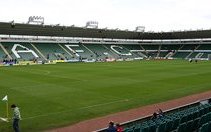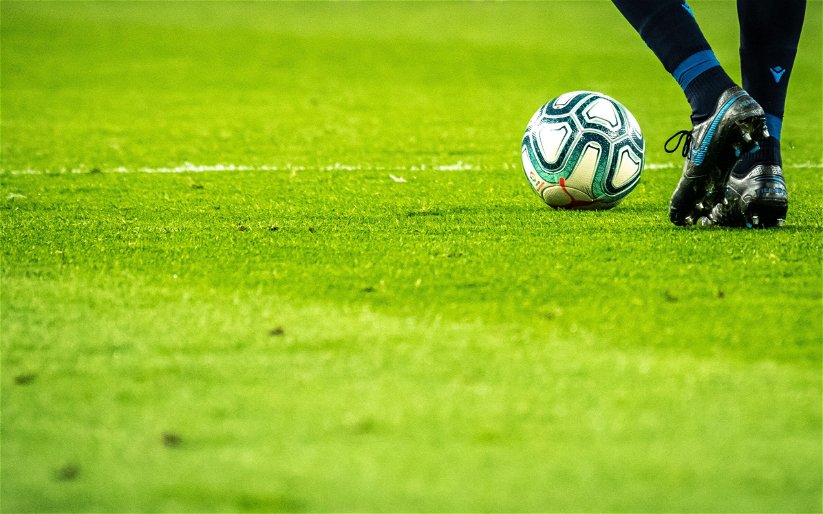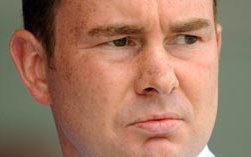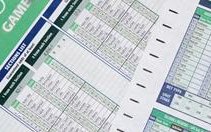Does anyone remember Sam Malsom? He was a prolific goal-scorer for the Plymouth Argyle youth and reserve teams during Ian Holloway’s time at Home Park but unfortunately he never progressed into the first-team.
We have an interview with Sam, courtesy of Gav Stone of www.lesrosbifs.wordpress.com who has kindly given permission for this interview to be published on Plymouth Vital.
Since leaving Argyle the 21-year old striker has had a varied and interesting career.
Malsom has played in Brunei, Latvia, Aldershot, Norway and now currently plays for B36 Torshavn of the Faroe Islands, where he played in the UEFA Cup against Brondby in front of 20,000 fans.
Sam reveals that the training facilities at B36 are better and more modern than at Argyle.
Sam Malsom is a rare commodity: an Englishman in the Faroe Islands. It’s hardly home from home, having lived and started his career in the south-west of England. Bad luck never seemed to be with him though in his home country, despite being a proven goalscorer. Sam was spotted by Torquay United at the age of 12 and was picked up by their Centre of Excellence. However, the club closed their Centre down by the time he had reached 16, leaving the Teignmouth local without a club.
Sam joined non-league Bishopsteignton before arranging a move with Plymouth Argyle. This worked out well, with a record of 29 goals in 24 youth and reserve team appearances, but then-manager Ian Holloway released him, due to the lack of first team opportunities open to him.
A number of trials followed at a wide and varied range of clubs such as DPMM in Brunei, Skonto Riga and Aldershot. The latter was a relatively successful stint in 2007. With three goals and two assists in two reserve games, but manager Gary Waddock, for whatever reason, was not impressed by Sam’s pace and eye for goal.
Options were not running out though; it was just that the range of clubs Sam was prepared to play for continued to be mixed.
A stint in Norway with ex-Plymouth Youth manager Stuart Gibson followed, along with some more local football with the likes of Crediton United and Stratford Town. Sam’s break came in 2008 though, when Faroese giants B36 signed him. One of his first matches was against Danish side Brondby in the UEFA Cup in front of 20,000 spectators. Sam put on a good show and has gone on from there, scoring plenty of goals and attracting the attention of a number of Scandinavian clubs along the way.
Q: You started off as a youngster with Torquay United. How was this?
A: I signed with Torquay United at the age of 12 and in the first year I played in the age group above myself. I really enjoyed my time at Torquay. without all the hard work and effort myself and the coaches put in when I was I there, I wouldn`t be where I am today.
Q: When their Centre of Excellence closed down, how did you feel? Did you feel that your career was over before it had even begun?
A: We were told about a month before that the centre of excellence might be closing down. I didn’t really know what to think at first. Obviously I was annoyed because after 4 years of training hard it leads to nothing. My aim was always to try and gain a YTS contract with Torquay, so at first it felt like my career was over before it had begun.
We were given an option to either stay with Torquay for that month or go out and try to find a new club. I decided to call the Under 16 youth coach (Robbie Herrera), who was an ex-Torquay United player, a few days later. I told him that I was going to leave. About a month later I was offered a coaching role at Torquay United Football in the Community with Frank Prince. I went to college in morning and coached in the afternoons and evenings. This was the point I realised that I wanted to have another shot at playing the game professionally instead of coaching.
Q: You then turned out for Bishopsteignton. What level was this and how did you find it?
A: While I was at college and coaching with Torquay I joined Bishopsteignton AFC. The level of football wasn’t the best but I enjoyed playing there. I played as a central midfielder at the time and I scored a few goals. There wasn’t really any pressure and I basically just played for fun, but I always wanted to win.
Q: Plymouth then came in for you. How was this?
A: I actually wrote a letter to Plymouth Argyle asking them if I could have a trial. John James (Plymouth Scout) wrote back and said that they had taken all the apprentices on so they couldn`t do anything. A few weeks later John came to watch me in the Herald Cup Final for Bishop. We won 4-1 and I scored 2. They asked me and another young player to come down for a week’s trial. I went down and stayed in the youth lodge and trained with the youth team as central midfielder. The youth team manager (Stuart Gibson) said I should go up front because I was fast and ever since then I`ve been playing as an attacker.
Q: How come you never played for the first team?
A: I signed a youth contract for half a year and went on to sign a professional contract, but I was largely involved with the youth team, because they were playing in a men’s league, and the reserves. I was top goalscorer in the youth and reserves with 29 goals in 24 games, but Ian Holloway released me because he felt I wasn’t ready at that moment in time to step up to the first team.
Q: On to Tiverton from there. How did that go?
A: About halfway through my time at Plymouth I went on loan to Tiverton. The Tiverton manager (Martin Rogers) called Ian Holloway and asked if there were any strikers available to go out on loan. My youth team manager recommended me as I was top goalscorer and I had a good time at Tiverton, scoring 2 goals in 4 appearances.
Q: Did you feel at this point that your dream was dying?
A: No. I think going on loan to Tiverton was a good thing. It gave me some first team experience and I came back to Plymouth confident. The hardest part of my career was when I got released from Plymouth. I was training everyday on my own at 6.00 am in the morning because the pitch in Teignmouth was a school field and the kids used it during the day for their P.E lessons and then in the evening the local youth clubs trained on it.
I was without a club for a few months, and at this point I felt like my dream was dying. My agent, my Mum and my Dad supported me and kept me going because at times I felt like giving up on playing football. Deep down though I always knew that if I worked on my weaknesses I could make a career out of the game. I still have the same mind frame now. If I want progress I must work hard for it.
Q: You had a number of trials – with Aldershot Town being particularly impressed. Any particular highlights from the clubs you tried out at?
A: I signed with my agent (Kevin Horton) after I left Argyle. A few days later I was on a plane going to Brunei. I trialled with a team called DPMM. I was able to meet the Prince of Brunei, who is one of the richest men in the world. The training ground changing rooms were made of marble and the facilities were luxury as well. It was so hard to play in the heat and unfortunately I got ill and had to return home, but it was a fantastic experience.
Q: Tell us about these trials in Norway. How did they come about and what did they involve?
A: My old youth coach at Plymouth, Stuart Gibson, left and joined a team called Steinkjer in the 3rd division in Norway, just after I came back from being on loan at Tiverton. Stuart invited me over to Norway to train with the squad for a couple of months. I couldn’t sign for the current season because of the transfer window, so he was hoping to sign me for the season after. I returned to England and played for Crediton and Stratford Town to keep fit. A few months after Stuart Gibson left the Norwegian club and B36 were interested in me.
Q: How did you sign for B36?
A: My Agent (Kevin Horton) knew an agent from the Faroe Islands (Hans Jacob) and they both organised a trial at B36. I trained with the squad 3 times and played a training match, scoring 2 goals, before signing for the rest of the season.
Q: You’re playing well, and have made a good start to the season. How are finding the level of playing in the Faroes?
A: Yes, I’ve had a good pre-season and I feel fit. A new manager has come in and he’s been playing me as an attacking winger, which is suiting my style of play. I’ve played 7 league games so far, scored 4 and set up 2. The level of playing here is decent. The top 5 teams in the league are strong.
Q: Are you part-time or full-time playing?
A: Most of the players here are part-time but I am full-time. My agent made sure I was on a full-time contract so I can train more, which will benefit me in the future.
Q: How have the fans taken to you?
A: The fans have been great to me. B36 have a fan club called the White Tigers and they are always cheering me and the team on at every home and away game. My girlfriends’ mum is one of the biggest fans.
Q: How easy/difficult has it been to fit into the Faroe way of life?
A: It’s been fairly easy to settle in the Faroes. It’s very relaxing here: everyone speaks English so communication hasn’t been a problem, I have a girlfriend here, so when I’m not training I spend most of my time with her, and her family have treated me really well and made me feel welcome.
Q: Describe an average day for a footballer in the Faroes.
A: Wake up at about 8.30/ 9am. and have breakfast. Arrive at the training ground at 10am. Usually I do upper and lower body weight training for an hour, then I go out onto the training ground and train my sprint and power programmes that my agent has set me. I then do some technique training, free kicks, shooting, control, dribbling and then I do a warm down.
At about 12.00 / 13.00, I either go back to my apartment and cook some food or I go to the shopping mall with a friend for something to eat. I rest from 13.00 – 16.00, then at 16.30 I arrive at the training ground with the squad. We start training at 17.30 and we usually train for about 2 hours. After training I either go home to cook some food or I go to my girlfriend’s house and her family cook and then I usually just relax with her.
Q: How do the training and facilities between Plymouth and B36 compare?
A: The training facilities at B36 are surprisingly better than at Plymouth. We have a small gym at the training ground, two large artificial pitches and the national team stadium is next to our training ground. So when we need to train on grass we train there. Plus the changing rooms are a lot more modern than at Plymouth.
At Argyle we changed in the stadium changing rooms and they were old fashioned. We also had to walk from the changing rooms all the way round the stadium to the training ground. In the winter season, the pitches would sometimes be waterlogged so we would have to travel by mini bus to the other side of Plymouth and train on Astroturf.
Q: As a player, what is the atmosphere like at a match in the Faroe Islands? How does it compare to an English fixture?
A: In most of the games that B36 play, the atmosphere is good. Our fans are always making noise at home and away games. The best atmosphere I’ve played in in the Faroe Islands was either the UEFA cup match against Brondby or the games when we play HB, which is a local derby. In England there are more people who go to watch games, but saying that B36 probably have the best support out of all the Faroe clubs.
Q: How have you found the language?
A: I know a few words but everyone speaks to me in English so I don`t really get to learn the language.
Q: What do you miss about England and English football?
A: The things I miss most are my family and friends. This season I am away for 10 months, but my mum and my brother are coming to watch the Europa League home leg in July so that will be good. I guess the thing I miss most about playing football in England is getting up every morning and going to train with the squad, rather than training alone because at times it can be a bit boring. Training in the evening here is good as well,
Q: Do you want a move back to play in England eventually?
A: Yes one day I would love to go back to England and play.
Q: What next in your career?
A: After the UEFA cup games last year, I had a few teams from Sweden interested in me and I got good reports from the Danish media, but I decided to sign for B36 for another season to gain more first team games in the league and the UEFA Cup, My agent is going to advertise me to some bigger teams in bigger leagues after the UEFA cup games in July. Hopefully I can keep playing well and scoring goals for B36. My aim is always to play at the highest level possible.
Q: How do you think you and your team will fare this season?
A: I think we can have a decent season. We have lost 3 important defensive players from last year so our defence is not as strong, but we have players in the team that can score goals.
Q: What sort of standard is the Faroes League? Better than League 2?
A: I think the top 4/5 teams could play in league 2 or league 1. It`s hard to compare because we only lost 1-0 to Brondby and they are good European side. We hit the post in that game so we could have drawn with them if we were a bit luckier. Plus the Faroe League champions (EB Streymur) only lost 2-0 to Manchester City in last year’s UEFA Cup first leg. So it`s hard to compare the standard to the English game.
Q: How does football in the Faroes differ from that in England?
A: Faroes football is more defensive than the English game and you get more time on the ball than you would in the lower leagues in England. It’s quite physical and we play at a decent speed like, teams in England. Obviously the Premiership is a lot faster than the league here.
The interview with Sam is available at http://lesrosbifs.wordpress.com/2009/05/25/sam-malsom-ex-torquay-united-and-plymouth-argyle-now-of-b36-torshavn-faroe-islands/
Share this article



